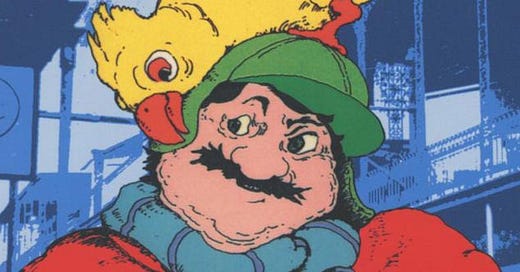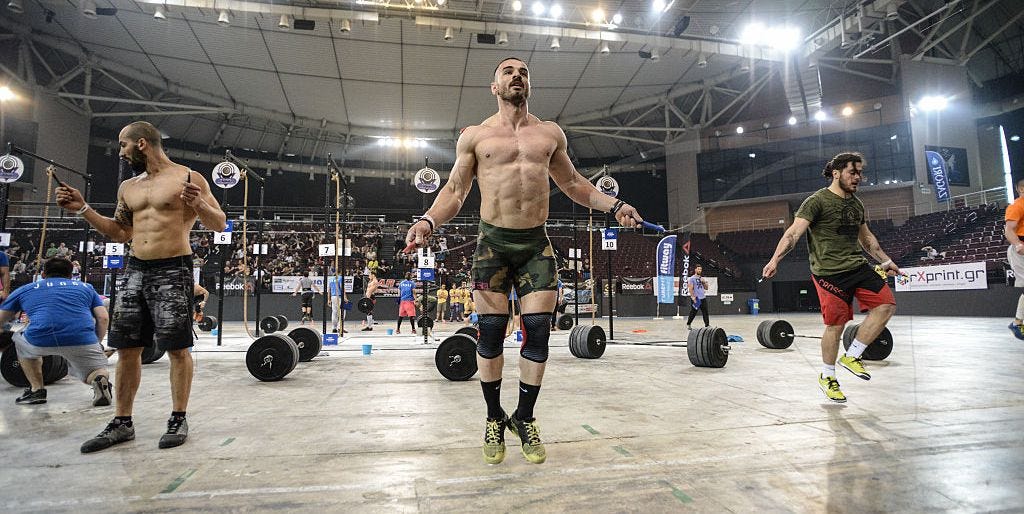The Problem of Being Ignatius Reilly
Do you feel the characters you write have a distinct consciousness from yours?
In early 2010, I read A Confederacy of Dunces for the first time. I had just returned from Utah where I’d worked as a Wilderness Therapy Counselor, an oil rig hand, and a poker-playing degenerate.
I felt most comfortable around troubled kids, so I promptly applied for and got a job at Child Saving Institute where I met Bob. Bob lent me a copy of …Dunces.
If only I could explain the transformative impact of that book on my brain. The humor was unlike anything I’d ever read. The absurdity reached heights I didn’t know a book could reach.
I at once despised and admired Ignatius, the central character. And while I’m positive admiration isn’t the outlook the reader is meant to have, I can’t help that I found his disdain for a job relatable and endearing. I’d had a case of terminal-employment-abandonment for years at that point.
Ignatius resisted with style and conviction.
So it should have come as no surprise when I found myself slipping into the character. Except, it came as a total surprise and no one should expect to start feeling confused about their identity when reading a book, right?
I had moments where I’d be reading and Irene Reilly would be heckling Ignatius to go out and get a job and I’d think, Gosh! Go away, Mom! She’d tell Ignatius she was going out with her new friends, and I’d think, Do you want everyone to think you’re a lady of the night?
Ignatius had a really great point about the workers in the factory at Levy pants. Those men and women were underpaid. Everywhere they were oppressing us. My friend Jones was being blackmailed to work in the Night of Joy strip club, and the only good dancer at that stupid place, Lana, wasn’t even given a fair shot.
Though I have to be honest, my valve about shut down for good when I realized Lana wanted to—on purpose—get naked in front of a bunch of strangers!
I Almost Did It Again
Pardon me. I started to think I was Ignatius again.
Except, that’s not true. The truth is, I recently reread A Confederacy of Dunces and I had the sad moment when I recognized the book no longer spoke to me like it had years ago.
Ignatius seemed pitifully disconnected from reality. Where I’d thought he was ahead of his time when I first read it, I realized on my second reading that Ignatius was the worst racist, the worst sexist, the most bigoted of the lot.
Can We Believe Opposing Points
I have an alt profile running around on Twitter. It is the main character of my novel, which is due out in September. (If you want to be the first person to learn who the profile is, buy my book The Seven-Figure Marketing Mindset For Novelists. I spill all the beans inside those pages.)
About My Alt Twitter Profile
Let’s start by thanking Justin Carter. Thank you, Justin. Back in 2011, Justin challenged me to write a book with a protagonist who believed the opposite ef me in as many ways as possible.
Several years later, I saw an appealing opportunity to accept his challenge. Politically, spiritually, economically, my main character viewed the world upside down from me.
At first, it was a fun, unique concept, but as years passed, I found I began to see the character’s point of view, and when I created a profile for the character, I began to experience the world in real time as the character would.
Those experiences began to radically alter my own worldview. Where no amount of debate, no amount of argument, no level of appeal had drastically changed my perspective, when I presented myself to the whims of an imaginary character I’d created, that character effectively changed how I voted and where I sent my donation money.
What Would Happen to You If…
What if you created a character who saw the world upside down from you? Could you keep up the act? Do you think your mind would change about anything? Would you be willing to shift based on your experience as that character?
I’ve been overweight and inclined to addiction for years, with symptoms seemingly worsening over time so if you find that CrossFit Christofer follows you anytime soon on Twitter you’ll know I’ve committed to a new year, and a new me.
Literally.






I tend to agree with you that it’s unlikely about having multiple consciousnesses living inside us but sometimes I do wonder. 
It’s one of those things kind of like aliens or deities. Unprovable at this point, but also impossible to disprove. 
I’m interested in your perspective that you have to empathize with your protagonist, because I don’t feel that way. I do have to understand them, but I understand people who are very different than me. Or at least I think I do. 
What most concerns me about myself is that above all things I am very classist.  no single thing bothers me more than people who are poor. Anyway I can help myself to relate to that population makes me a better person. 
Thank you for the kind words about my posts. 
Thanks for another fine post! Could I write a protagonist with the opposite viewpoint of me? Probably not. I wouldn't enjoy that. I've made villains like that. I think I must understand and empathize with the protagonist. To be opposite in every way, I don't that I'd want want to do that.
To answer the question posed in the title: Do your characters have a separate consciousness from the author, the answer is no. Their consciousness is ours, their thoughts are ours. We can segregate them in our imagination and make them distinct, but they are still in our consciousness.
That explains, a little, your transformation over time. Doing that exercise of writing an opposite view of your own changes your thoughts. Our behavior follows our thoughts. Our thoughts come from our inputs. Likely, you researched opposite viewpoints of yours and learned many things you didn't know.
Thanks again for a thoughtful post! Truly I had never thought of writing a protagonist with opposite views of my own. I'll probably toy with the idea for a long time.
Author Andy Zach